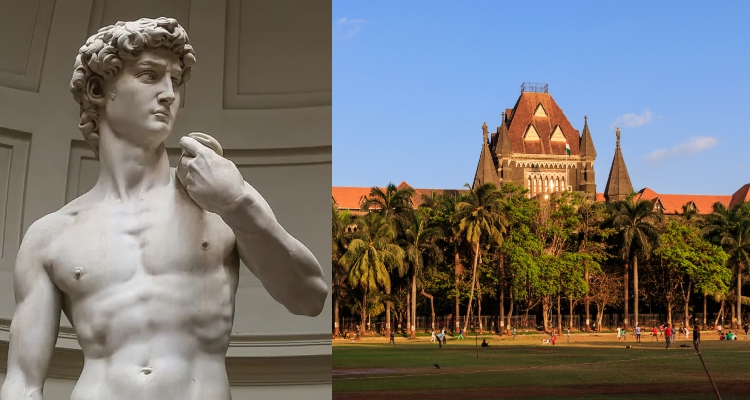
The Bombay High Court has recently ordered the release of 7 paintings by acclaimed Indian artists Francis Newton Souza and Akbar Padamsee, criticizing customs officials for seizing the artwork on the grounds of obscenity.
A bench of Justices MS Sonak and Jitendra Jain highlighted that customs officials can’t arbitrarily claim to represent community standards regarding obscenity without proper justification.
The court quashed a July 1 order from the Assistant Commissioner of Customs, who had confiscated the paintings.
The judges noted, “Every nude painting or every painting depicting some sexual intercourse can’t be styled as obscene… An assistant commissioner of customs cannot lightly assume the mantle of being a spokesperson for community standards.”
The dispute began in 2022 when BK Polimex India Private Limited purchased three drawings by Padamsee and four by Souza at auctions in London. On March 24, 2023, the company shipped the artworks via FedEx, clearly labeling them as “nude drawings” to comply with customs regulations.
Upon arrival in India on March 27, customs officials scrutinized the shipment, and the petitioner alleged threats of confiscation and destruction of the artworks.
To preemptively avoid issues, the company sought permission for re-export on April 17, but customs issued a seizure memo on April 20, declaring the artworks as “obscene material.” The petitioner contested the seizure, arguing that the artworks were not obscene and submitted certificates from art galleries and expert opinions to support their claims.
After a lack of response from customs by June 7, 2023, a personal hearing was requested and conducted on June 22, where additional arguments were presented. On October 19, customs demanded an explanation for why the artworks should not be confiscated and destroyed.
The petitioner responded with a detailed legal argument, citing precedents against the classification of obscenity. However, the Assistant Commissioner upheld the seizure and imposed a fine of ₹50,000, prompting an appeal to the High Court.
Customs officials defended their actions based on a January 1964 notification under the Customs Act, which allows for the prohibition of imports deemed contrary to public order and standards of decency.
However, the High Court criticized this approach, noting that the order relied on personal interpretations of obscenity rather than expert opinions or legal standards.
The court pointed out that the customs official’s reasoning was based on irrelevant factors, including his individual moral standards and the fact that the petitioner had labeled the goods as “nude paintings.”
The judges emphasized that personal opinions should not cloud official judgment when exercising public powers.
Ultimately, the High Court found that the customs officer’s conclusions reflected a simplistic view, equating any depiction of nudity with obscenity, failing to acknowledge the artistic merit of the works.
The court noted that Indian law does not have a clear definition of “obscene” and deemed the officer’s findings unreasonable.
Recognizing the significant accolades received by both artists, including Padamsee’s Padma Bhushan and Souza’s Guggenheim International Award, the court ruled that their contributions to art should not be overlooked.
The court ultimately quashed the customs order and directed the immediate release of the confiscated artworks within 2 weeks.




